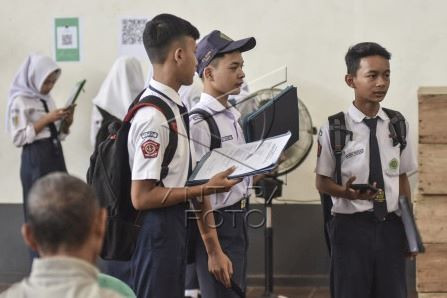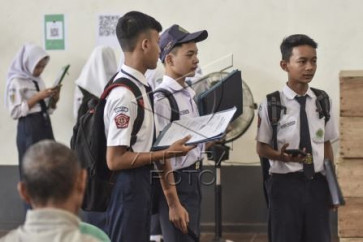Popular Reads
Top Results
Can't find what you're looking for?
View all search resultsPopular Reads
Top Results
Can't find what you're looking for?
View all search resultsPublic-private partnership in education to help the budget deficit
Public schools can learn from private sector experience in teacher training, pedagogy, performance management and extracurricular activities.
Change text size
Gift Premium Articles
to Anyone
P
resident Joko “Jokowi” Widodo expressed his confidence during the House of Representatives plenary session on Aug. 16, that the 2025 state budget, to be implemented by his successor Prabowo Subianto, would focus on optimizing revenue, ensuring quality spending and promoting innovative financing.
But, as happened in 2023, a budget deficit looks inevitable as the country will continue to confront fiscal challenges in the forthcoming years.
The Finance Ministry previously reported a budget deficit of Rp 77.3 trillion (US$4.945 billion), or 0.34 percent of gross domestic product (GDP), in the first half of 2024. This came alongside an 11.3 percent increase in government spending and a 6.2 percent decline in state revenue.
The Indonesian economy also faces acute challenges, such as deepening inequality and poverty, underperforming educational achievement and infrastructure logjams. These will likely continue to obstruct the country’s efforts in improving human resources quality to welcome the Indonesia Gold 2045, when the country is predicted to have human resources of the most productive age.
Despite these constraints, Indonesia has steadily increased its education budget each year, more than 20 percent of the minimum annual budget as required by the Constitution; nevertheless, problems in the areas of access and quality remain intact.
In its latest report, UNICEF found that although Indonesian children now have more opportunities to be in school than ever before, approximately 4.3 million children and adolescents aged 7-18 years are still out of school. Those who are at risk of school exclusion are children from the poorest families, children with disabilities and children living in underdeveloped areas of the country.
The latest 2022 score of the Program for International Assessment (PISA) has also declined, which was believed to have been attributed to learning loss during the COVID-19 pandemic, in the area of mathematics from 379 (2018) to 366 (2022), in the Indonesian language from 371 (2018) to 359 (2022), in science from 389 (2018) to 383 (2022).


















